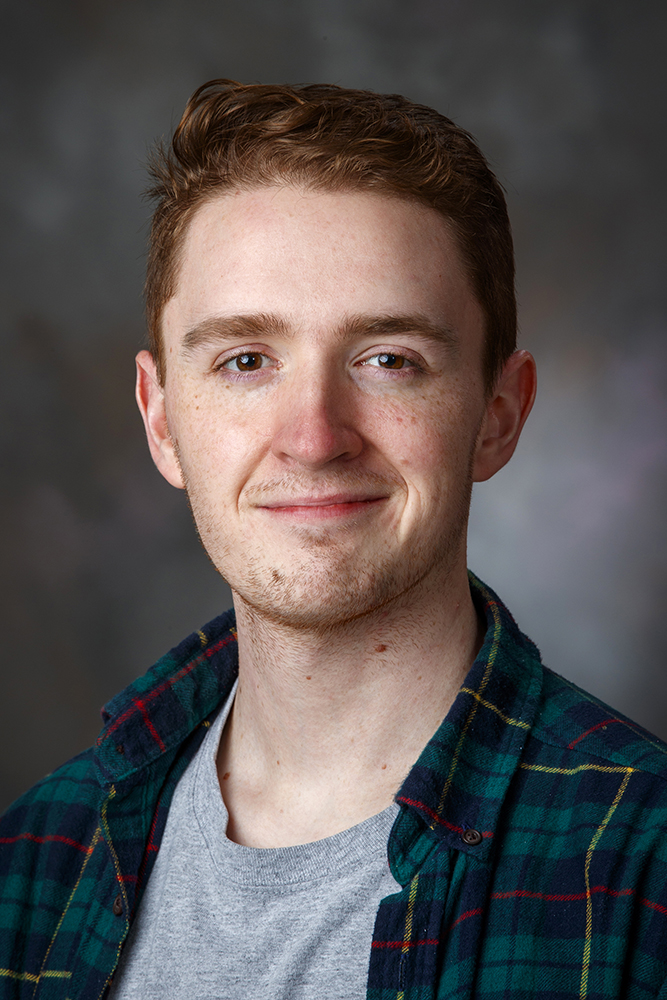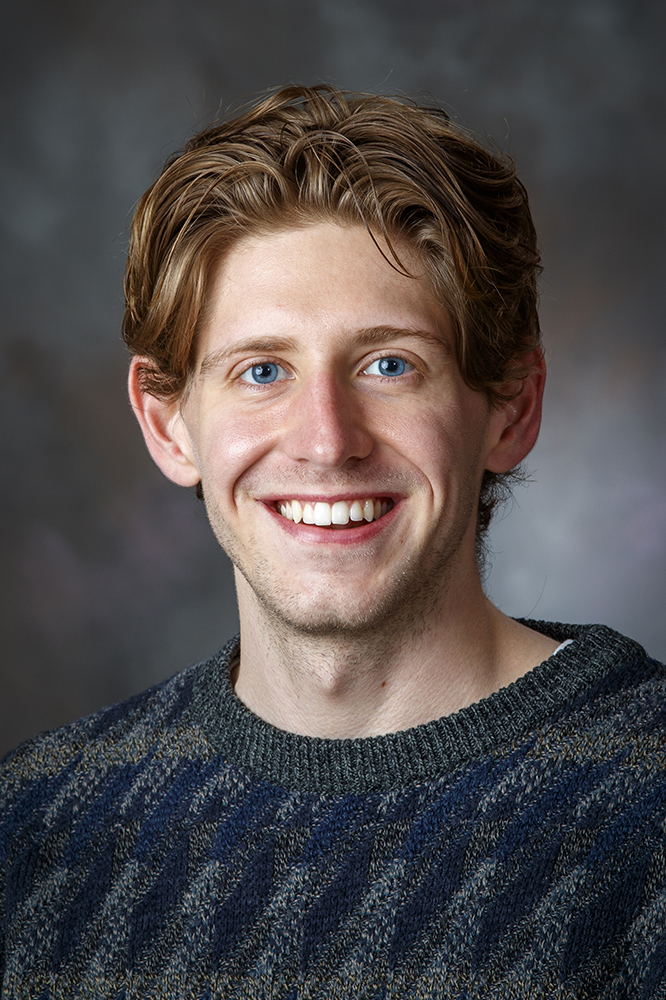
Two University of Nebraska–Lincoln seniors — Andrew Haar and Cole Kovarik — have been awarded fellowships from the German Academic Exchange Service to pursue master’s degrees at German universities.
Haar, a mathematics major from Lincoln, will attend the University of Bonn to pursue a master’s degree in mathematics. He chose this program because it offers a strong foundation in pure math (analysis and differential equations), which can be hard to find in the United States or even at other German universities. Haar has taken high-level graduate math courses at Nebraska since his junior year. He has a German minor and has already studied math at the University of Leipzig for a semester in 2019. At Nebraska, Haar has been involved in university-supported research with Petronela Radu, Leland J. and Dorothy H. Olson Professor of mathematics, and has a publication forthcoming.
Kovarik, a Kearney native, is a political science, global studies and Spanish major with minors in human rights and humanitarian affairs and national security studies. He is also in the University Honors Program. He will pursue a Master of Arts in International Relations: Global Governance and Social Theory at the University of Bremen and Jacobs University Bremen. He selected this program because it has faculty who specialize in the relationships between civil society organizations, international institutions and democracy, which are his chief research interest areas. Kovarik has worked on a number of research projects as an undergraduate and will soon complete his honors thesis under the supervision of Courtney Hillebrecht in the Department of Political Science and Emira Ibrahimpasic from the School of Global Integrative Studies. He was also an intern at the U.S. Embassy in Berlin, though that internship was cut short by the pandemic.
The German Academic Exchange Service, founded in 1925, is a private national agency that receives both federal and state funding and represents 365 higher education institutions in Germany. It offers competitive, merit-based grants for study and/or research at accredited German institutions that cover the full cost of tuition plus living expenses.









